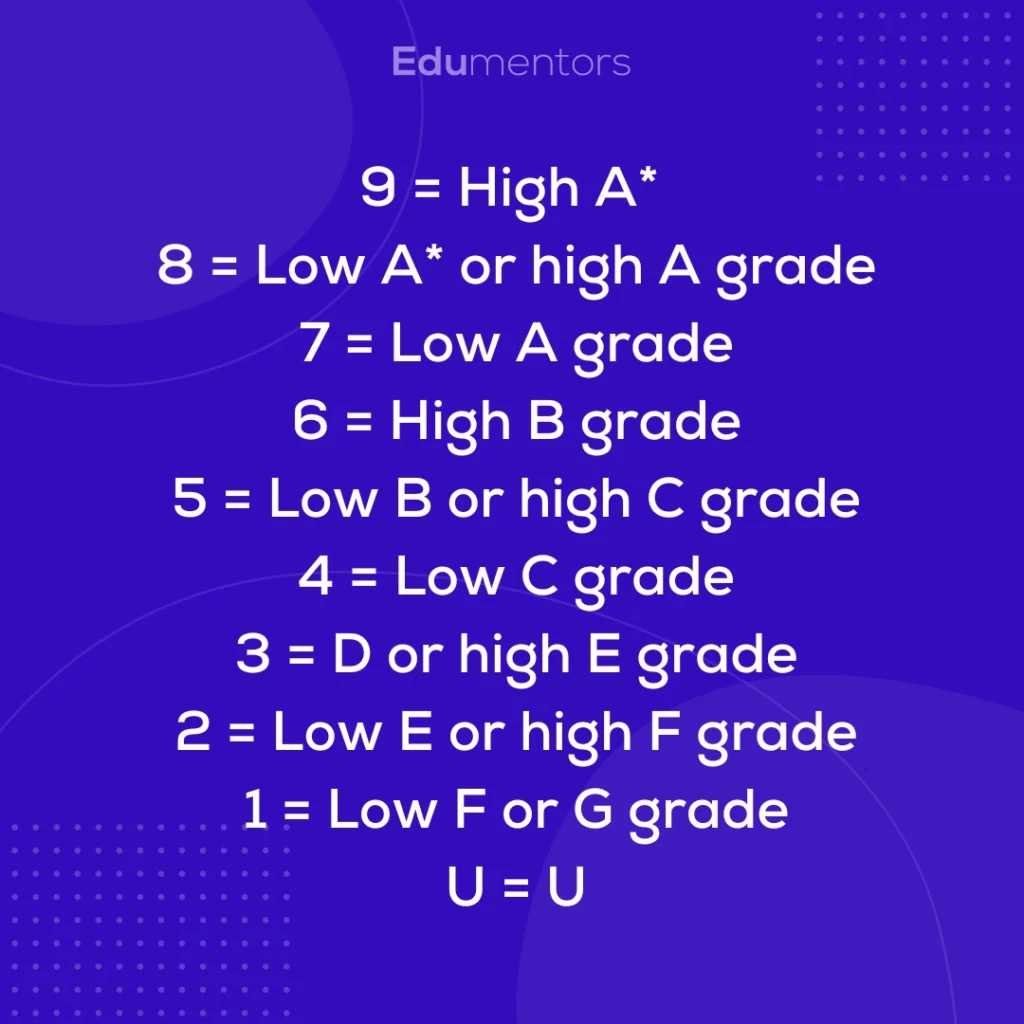How to Be Fully Prepared for GCSE Results Day in 2023?
GCSE Results Day
When is GCSE Results Day 2024?
Congratulations! The GCSE results day is drawing near, and anticipation is building as you’re about to discover how well you performed in your GCSEs. It may feel like a long wait until the results are finally revealed, replacing the uncertainty of predicted grades with concrete numbers. But remember this: You’re not alone.
Many of your classmates are experiencing the same anticipation, and we’re here to support you in being as prepared as possible. Results day can be an incredibly stressful time, so it’s essential to prepare mentally and have all of the options at your fingertips. If you have any concerns about your grades, it might be comforting to know that you can request a remark for your GCSEs. This process allows for a second look at your exam papers to ensure that everything was graded accurately.
Some schools even begin preparing students for A-levels as soon as they pass their GCSEs, so contemplating the increased workload may feel overwhelming. Take everything one step at a time, breathe, and know that you have options and support every step of the way.
When is the GCSE Results Day?
The GCSE results day for 2023 is set for the 24th of August, although schools will receive the grades a day earlier, on Wednesday the 23rd. Typically, results are updated around 8:00 am. While some schools offer online services to check results, we strongly recommend visiting your school in person to receive them.
By going to your school, you’ll have the benefit of being surrounded by teachers and classmates who can provide the emotional support you might need. Should you find yourself dissatisfied with your grades, there will be staff on hand to discuss your next steps. Being present at your school offers you immediate access to guidance and ensures that you have all the information necessary to make informed decisions about your future.
How are GCSE Exams Graded?
GCSE exams are graded on a scale of 1 to 9, with 9 being the highest score and 1 being the lowest. Before 2017, grades were assigned using letters A to G, but this system led to confusion, particularly when differentiating between close grades like B and C. To address this, the grading was changed, providing employers and universities with a more nuanced understanding of a candidate’s proficiency in a specific subject. In the new system, a score of 9 equates to an A* in the old one, and the passing grade is 4, equivalent to a C in the old grading system.

Grade boundaries play a crucial role in this process. They are set by examination boards and define the minimum mark required to attain each grade. These boundaries can vary between subjects and exam boards, and are often determined after all exams have been marked, helping to ensure that the grading is fair and consistent across different years and various levels of difficulty in the papers.
In most cases, teachers from your school will grade your work, following strict rules set by exam boards. Teachers cannot arbitrarily give higher grades based on personal knowledge of a student’s circumstances. Exam boards closely oversee the marking process, even if grading is done internally, to ensure that the grading adheres to their rigorous standards.
Remember, You Can’t Change Your Grades Before the Results Day
It’s natural to worry and think, “What if I fail my GCSEs?” But it’s essential to recognise that things beyond your control aren’t worth agonising over. While grades are important, they don’t determine your entire future. Even with a low grade, you can still attend an excellent university and secure a fulfilling, well-paid job that you’ll love.
If you find yourself dissatisfied with your grades, remember that you have options:
- Appealing Your Grade: If you believe a mistake has been made in the grading process, you have the right to appeal.
- Resitting an Exam: GCSEs can be resat an unlimited number of times, with no age restrictions, allowing you to improve your grade if needed.
- Enhancing Your Application: You can make your university application more appealing through strong school performance or involvement in various extracurricular activities. Some universities may still consider you a strong candidate based on these factors.
- Pursuing Foundation Courses: Level 2 in a foundation course is equivalent to a C in the GCSE exam, providing an alternative pathway to success.
Your grades are just one part of your educational journey. There are many paths to success, and a single exam result doesn’t limit your options or potential.”
What is GCSE Remarking?
GCSE remarking, also known as a review of marking, is a process that allows students to request a second evaluation of their exam papers. This procedure is typically initiated when a student, parent, or teacher believes that a mistake has been made in the original grading process.
Requesting a Remark
The student or a representative from the school must formally request a remark from the exam board. This usually must be done within a specific timeframe after receiving the original grade.
Review by a Senior Examiner
A different examiner, often with more experience, will review the paper to ensure that the original marking was accurate. The reviewer will follow the same mark scheme used in the original grading but will look at the paper with fresh eyes.
Possible Grade Changes
The remarking process may result in a change to the original grade, either upwards or downwards. It’s essential to understand that a remark does not guarantee a higher grade; it’s a reevaluation for accuracy.
Fees and Refunds
There is often a fee associated with requesting a remark, but this may be refunded if the remark leads to a change in grade.
Decision to Resit or Accept
If the remark does not lead to a satisfactory outcome, the student may decide to resit the exam or accept the grade and move forward with other opportunities.
Deadline
The deadline for requesting a remark varies by exam board but is generally within a few weeks of receiving the original grades.
GCSE remarking is an essential tool in ensuring that grades are fair and accurately reflect a student’s performance. It provides an avenue for students to have their work reevaluated if they believe an error has been made, thereby maintaining the integrity and fairness of the examination process.
Ask for Support
Sometimes it’s really hard to ask for help. We all struggle with that. However, imagine your friend being nervous, and anxious and not telling you about it! We all need help, don’t be ashamed to tell your loved ones. For parents wondering what to do if your child fails their GCSE mocks, we have a comprehensive guide to help you support them through this challenging time.
Your parents may think that you don’t want their interference too much and may take a step back. Hence, you need to communicate. Even watching a movie with your friends or your mum/dad can be calming enough to get through this period.
You can also go to the therapist too. It’s nothing to be ashamed of, they are professional at this and they will help you to get through this waiting period. Also, talking to a stranger may be even more helpful for you, if it’s hard to open up.
Try Healthy Habits
Eat well, try new foods and try to eat healthily. Remember, you are what you eat. Some food may feel good at the moment, but it may cause inflammation and it won’t give you the nourishment that you need. However, that does not mean you can’t have fast food, chips or sweets once in a while. If it will give you emotional comfort, go for it. In spite of that, you can just try adopting healthy eating habits for a week, and then you can see for yourself how calmer and less anxious you are! There are also scientifically proven 5 brain foods to boost brain health.
You may be tired of hearing it, but working out can also help with stress. Exercising reduces levels of hormones like cortisol and adrenaline – which are the body’s stress hormones. It also helps with stimulating endorphins which are natural painkillers and mood stabilisers. If you start both working out and eating healthy, That’s even better!
If you’ve tried working out before and you know it’s not for you, you can always opt for yoga – it’s easier to start and you’ll feel results on the first try.
Read this article to learn 7 ways to improve your mental health during exam season.
Adopt New Fun Hobbies
Start journaling and write away all your worries. As soon as you feel that anxiety creeping up, pick up your journal and just write. Don’t worry about punctuation and spelling, just write. You can reread those notes after the GCSE results day and pet your past self on the back for working through that worries bravely!
Go out with Your Classmates Before the GCSE Results Day
Your classmates are also stressed about the GCSE results day. You’ve all been studying for GCSEs for years. You sometimes maybe even wonder if all of that studying was for nothing – “What if I fail my GCSEs?”, “Do universities care about GCSE resits?” all those kinds of questions are now in your head.
Guess what? Your classmates are in it with you. Ask them if they want to go out, plan out a picnic or a movie night. You can discuss all of your worries with them or you can just not talk about that at all and forget about the results day for a while.
After the results day, you can go to get free food together, just celebrate the end of this tiresome period!
What Should You Bring to School on the GCSE Results Day?

First of all, go with some sort of support system. Your parents will want to come with you anyway, but you can ask your favourite cousin too or friends from other schools, for example. Well, anyone you’d want to be with when you are in distress, it’s up to you. If you are someone who rather receives their grades alone, don’t be ashamed, tell your parents that, but make sure you call them after you got your grade. It’s very stressful to wait for parents too!
- Bring your phone – take memorable pictures. You’ve been studying for GCSE exams for years, just breathe out the sigh of release and take photos with your family, friends and teachers who helped you to come to where you are. If you had a tutor who lives nearby, you can visit them too and express gratitude! Or maybe you can call them with a video chat and screenshot! It will have no less happy memories attached to it than a photograph.
- Bring a bottle of water – hydrating is important. Water has natural properties that are shown to reduce anxiety. Just bring your favourite bottle and as soon as you feel overwhelmed, drink! You can also bring snacks too – learn about 5 brain foods to boost brain health. You can’t bring fish or vegetables to school, but you can get nuts and dark chocolate to go!
- Photo ID – even though it will be probably your teacher handing you your results, bring some kind of document for identification, just in case.
What Happens If I Fail my GCSEs?
You may not know your grades yet or have good predicted grades, but still think what happens if you fail in your GCSE exam. Don’t worry. There is no limit on the number of resits you can do, nor there are age restrictions. If you’re particularly concerned about core subjects, read our guide on what happens if you fail your GCSE Maths, which outlines specific options for this critical subject.
You can still go to the university, the majority of them don’t care about if you resit or not. Not only that, but you can even go to university without GCSEs. If you are a really good candidate and have really good grades at school, have done extracurriculars and etc. some universities will still consider you. You can also do foundation courses – they take just a few weeks and a level 2 foundation course equals to C in GCSEs.
School Leaders Form Pact Not to Show Off A-level results
Some students take A levels and GCSEs in the same year – so you may also want to know how to be prepared for A level results day too.
School leaders don’t want to share A-level or GCSE exam results since it results in unhealthy comparisons between different schools or students. It also promotes people to compare this year’s grades to previous years which sometimes can’t give them the insights that they are looking for.
In 2020 and 2021, GCSEs, AS and A Levels were cancelled and grading was done by teachers’ or lecturers’ assessments. That’s why grades were much higher and we should not compare this year’s results to the previous ones. It creates additional and very much unnecessary stress and anxiety for teenagers.
If You Need to Resit Your GCSE Exams, There are Several Ways You Can Prepare!
Study by Yourself
There are numerous resources online – free and paid. Mock tests, practice tests, GCSE books and etc. If you have that kind of discipline to study and revise by yourself, you can always do that and it will save you a lot of money! Check out the top 7 revision methods and pick the one that works for you.
Take GCSE Courses at Your Local College
Colleges provide GCSE courses for all subjects. You can search for courses that are near you and take them. One of those options is Open Study College’s GCSE courses, which are held online. You can study for GCSEs from home and prepare for A levels without losing time to travel to colleges.
Hire a GCSE Tutor
There are many types of tutors – in-person tutors, group tutors, and online tutors. All of them have their pros and cons.
If you are searching for something convenient and cost-effective – online tutors are for you. Neither you nor your tutor will need commuting and it will save you both time and make scheduling more flexible. Online tutoring has become more and more popular since the pandemic started. That’s why there are many great online tutoring services which you can choose from. One of the best platforms that screens and carefully selects every tutor is Edumentors.co.uk – you can find a great tutor for every subject in GCSE there.
Edumentors only scouts tutors from UK’s top universities like Cambridge and Oxford. These tutors went through the same exams as you did not too long ago. That’s why working with a young tutor from your dream university can be the best decision you can make regarding your preparation for GCSEs. Student tutors know what you’re going through because they’re also on the same ship. Hence, they can create a personalised study schedule tailored to your learning style and needs. The best thing is – you can always book a free introduction session and see how this could work out. Check out insights on how should the first meeting of tutor and student go.
You can get a free trial with any tutor you like. If you need help choosing, you can consult with an expert or for more details, you can check out our Edumentors platform.
Remember, your entire life is still ahead of you and there are thousands of ways how to improve your future! You can’t change your past so don’t dwell on it, focus on positively impacting your future!









